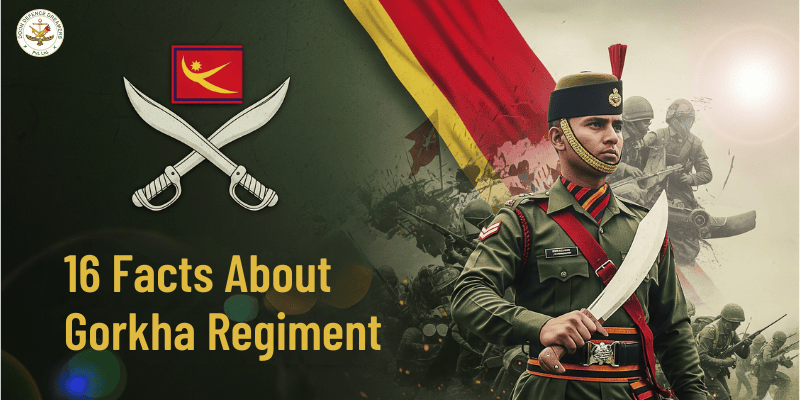Facts About the Gorkha Regiment
If you’ve ever heard the rallying cry “Ayo Gorkhali!” you’ve brushed against a legacy of grit, humility, and lightning-quick courage. Here’s a warm, humanized look at the Gorkha Regiment—who they are, how they train, and what makes their culture so distinctive.
A legacy built on loyalty
The Gorkha Regiment is renowned for unflinching loyalty—to the unit, to comrades, and to the mission. Ask veterans what matters most and you’ll often hear one word: “izzat” (honor). It guides choices in the quiet moments as much as in combat.
The khukuri is symbol and tool
That iconic inward-curving knife isn’t just ceremonial. In the Gorkha Regiment, the khukuri is a multi-purpose field companion—used for everything from cutting rope to preparing rations—while also embodying discipline, skill, and responsibility.
Recruits are selected for heart as much as muscle
Selection favors endurance, adaptability, and character. The Gorkha Regiment has a culture of cheerful toughness—soldiers who can smile through hardship, shoulder a buddy’s load, and still crack a joke at the end of a brutal climb.
Mountain DNA
Many recruits grow up in hill country, so altitude, steep trails, and thin air feel familiar. No surprise that the Gorkha Regiment is repeatedly trusted in high-altitude operations where sure-footedness and stamina are priceless.
“Work hard, laugh harder”
There’s a playful side behind the steel. Inside the Gorkha Regiment, you’ll find impromptu songs, shared meals, and friendly football matches. That camaraderie isn’t fluff—it’s fuel for morale when the weather turns and the days stretch long.
Languages as bridges
You’ll hear Nepali, Hindi, and English around the barracks. The Gorkha Regiment treats language as a connector: a way to welcome new comrades, coordinate precisely, and carry forward folklore, jokes, and wisdom across generations.
Quiet professionals
The stereotype is true: Gorkhas often understate their achievements. The Gorkha Regiment tends to let actions speak—on patrol, in a rescue, or during a night march where the only sound is crunching gravel and steady breath.
Training that celebrates basics
No shortcuts here. The Gorkha Regiment drills footwork, fieldcraft, casualty evacuation, navigation, and small-team tactics until they’re second nature. When things get chaotic, basics save lives. Basics like fieldcraft and navigation are also drilled into aspirants at our Defence Coaching Institute.
Respect for elders—and curiosity from the young
Unit culture blends reverence and candor. Seniors pass down lessons with stories; juniors ask questions without fear. The Gorkha Regiment knows that curiosity strengthens competence.
Food is community
Daal-bhaat, achar, chai—the simple comforts that keep spirits high. The Gorkha Regiment takes pride in wholesome meals, often cooked together when possible. Sharing food is sharing strength.
Families are part of the mission
Behind every soldier is a web of parents, spouses, siblings, and kids. The Gorkha Regiment makes space for that reality with community events and support systems—because a strong homefront steadies the soldier’s heart.
Songs, folklore, and festivals
From Dashain to Tihar, traditions are celebrated with color and warmth. The Gorkha Regiment keeps cultural roots alive with music, dance, and stories that tie today’s troops to ancestors who walked similar roads.
Discipline without drama
Orders are crisp, drills are tight, kit is squared away—but it’s not performative. The Gorkha Regiment treats discipline as quiet reliability: be where you should be, with what you need, ready to act.
Reputation as force multipliers
Small teams, big effect. The Gorkha Regiment is known for speed, cohesion, and trust under pressure, turning difficult ground and short timelines into solvable problems.
Compassion in the chaos
Disaster relief, search-and-rescue, helping stranded travelers—these acts rarely make headlines. The Gorkha Regiment carries a humane reflex: protect civilians, steady the shaken, and bring calm where fear has taken hold.
The motto made real—everyday
“Ayo Gorkhali!” isn’t just a cry; it’s a promise. In the Gorkha Regiment, it means showing up—whether for a buddy in pain, a villager in need, or a mission that looks impossible at first light.
Why this all matters
The Gorkha Regiment reminds us that soldiering is a human craft. It’s early mornings and blistered heels, shared thermoses and shared jokes, the discipline to double-check a knot, and the courage to step forward when others step back. Their story is one of heart—steady, humble, and ready.
If you ever meet a Gorkha veteran, you’ll notice the posture first: relaxed but alert, eyes that have seen hard weather and kinder moments, hands that know tools and instruments and the khukuri’s careful weight. That’s the Gorkha Regiment—heritage on one shoulder, responsibility on the other, and a kind of cheer that refuses to fade even when the climb is steep.
In a world that can feel loud and hurried, the Gorkha Regiment practices a different rhythm: master the basics, honor your people, move with purpose, and keep your sense of humor intact. It’s a blueprint for soldiering—and, honestly, a decent way to live.
Ayo Gorkhali.

































